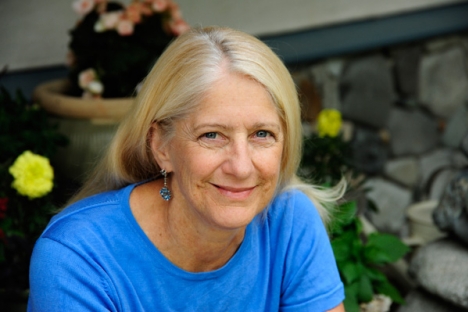Participatory democracy or puppet mastery? Open government in Rossland … or not?
In the lead-up to Rossland’s recent municipal elections, all the candidates clamoured to speak in favour of greater transparency in local government machinations and to pledge allegiance to the principles of open communication and public consultation.
It is fitting, then, that a controversy over the exclusion of council (and the public) from important decisions—namely, the grant application for the swimming pool project and related unauthorized spending—should detonate almost as soon as the new council settled into their seats. The response from councillors on the first substantive issue requiring good communication to come before them, however, has been remarkably non-existent. The Telegraph reported last week that following the Jan. 3 committee-of-the-whole, CAO Victor Kumar held a separate closed-door meeting with council. As Kathy Moore explains below, it was a strategy session in which Kumar suggested that council present a “united front.” Other reports suggested that Kumar used the meeting to blame the media for the failure of the Columbia-Washington grant, among other similar topics. The B.C. Community Charter, however—the main legal document guiding municipalities—frowns on closed-door council meetings except under certain circumstances. Division 3, Section 88 of the Charter reads, “A meeting of a council must be open to the public, except as provided in this Division.” Section 90 lays out the exceptions, such as meetings that consider personal information about city employees, labour relations, municipal property, law enforcement, litigation, preparations for an annual report, discussions of Freedom of Information requests, the consideration of whether a meeting should be closed, and other issues of confidentiality. There is no mention in the Charter that council may hold a closed meeting to complain about the media, or to discuss a strategy of presenting a “united front” in the eyes of the public. That is to say, Kumar’s meeting last week went directly against the Community Charter—which is to say, the law. Soon after he was hired in 2009, Andrew Zwicker of the Telegraph asked Kumar to describe his management style. Kumar responded, “I’m much more people-oriented and much more participatory. I want to make sure that democracy works … so that everybody has their say. … You don’t want to stifle it. The key job of city manager is to make sure that council is on track on that basis.” He continued, “I’m not the type to give statements and these things; I prefer members of council to liaise with the public. They are the ones that get elected and at the end of the day are accountable for their decisions to the public. So I’ll make sure that they are well-informed and that there is communication between ourselves the staff and the members of council.” I recently posed two pointed questions to our councillors via email: 1) Looking back on the indoor pool grant application, would you have voted the same way now as you did in late December? 2) How do you plan to hold the mayor and CAO to account in the future? How do you feel about the CAO’s “orders” that you tread on eggshells around us, the “negative media,” and how will this impact your plans to maintain open lines of communication with the public? Councillors were only given two days to respond prior to publication, and the sole response so far has come from Moore. In the spirit of open communication, we look forward to hearing more opinions from the other councillors soon. Moore wrote: “I would have voted the same way. While I respect the majority’s decision to support it, I personally do not believe this grant application was the best we could have done. I would have appreciated the opportunity to consider other eligible projects. “I believe it is very important to maintain open and honest communications with the media and the public. The CAO was not giving orders. He made a suggestion that a “united front” from council would be more productive and successful. We have had a lot of controversy over the years in this town and people just want to see things get done. “That is true, but despite the controversy a lot has gotten done. (Just take a perusal of the last couple of annual reports from the city). Perhaps the accomplishments just get less coverage in the media when the controversy is so much more juicy. So with less controversy, then perhaps there would be more appetite for more news about what is being done to move our community forward. “Everyone likes to play nice in the sandbox; however, we were elected to represent the views of all Rosslanders and we are a very diverse group of councillors. We have strong differences, as we should; we represent a diverse community. There will be times when we agree and times when we don’t. I see it as healthy and I welcome the media to accurately report our deliberations. “Everyone understands that we make decisions based on a majority vote. I am fully supportive of council decisions once they are made, but that doesn’t mean I am expected to change my opinion. Though I might add, sometimes I do change my opinion based on council discussions. Councillors are taught to go into meetings with an open mind, not an empty one. If we learn new information or form a new point of view, we are fully able to change our initial position and vote accordingly. “As for holding the mayor, the CAO or anyone else to account—I think the best way to do that is to ask questions and be informed. Councillors need to pay attention and ask questions of staff, citizens need to pay attention and ask questions of council, and the media needs to ask questions of everyone. “This is our system of government and our open society. It’s meant to be inclusive and transparent and I believe it’s the best system out there.”


























